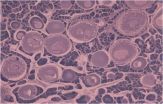(Press-News.org) Dr. Jack Musick, emeritus professor at the Virginia Institute of Marine Science, has overseen a global study suggesting that 33 percent of shark, skate, and ray species are threatened with extinction.
The work is part of a major new study of vertebrates by the International Union for Conservation of Nature (IUCN), the world's oldest and largest environmental network. The IUCN study shows that conservation actions have benefitted a few species of vertebrates around the world during the last few decades, but are too few and far between to slow an overall rapid increase in the number of threatened species.
A summary of the study, "The Impact of Conservation on the Status of the World's Vertebrates," will appear in this week's issue of the flagship journal Science. The study is based on an on-going appraisal of the IUCN Red List, the worldwide standard for assessing the status of species. Red List categories run from "least concern" to "near threatened," "vulnerable," "endangered," "critically endangered," "extinct in the wild," and "extinct."
Placement in a category reflects a species' abundance, reproductive rate, geographic range, and other such factors. A "data deficient" category holds species for which there is inadequate information to assess extinction risk based on distribution, population status, or both.
Musick served as co-chair of the IUCN Shark Specialist Group from 1997-2006, and currently serves as Vice Chair-Science. It was in these roles that he oversaw the Red List assessment of sharks, skates, and rays by an international team of more than 100 experts. The team assessed nearly all of the 1,168 described species of these cartilaginous fishes.
The group's work suggests that 345 of the 1,044 species of cartilaginous fishes studied (33%) are "threatened," a broad grouping that includes species in the "vulnerable," "endangered," and "critically endangered" categories.
Musick cautions that assessing the exact threat level for cartilaginous fishes is made difficult by the group's large number of "data-deficient" species, itself a consequence of the difficulty and high cost of sampling these underwater creatures.
He says the researchers dealt with this uncertainty by applying three different assessment techniques: one that likely underestimates threat by assuming that none of the data-deficient species are threatened, one that likely overestimates threat by assuming that all of the data-deficient species are threatened, and a middle course that assumes that data-deficient species have the same fraction of threatened species as those in the "data-sufficient" categories.
Musick is confident the middle course represents the best estimate (the 33% value mentioned previously). The assumption that none of the data-deficient species is threatened gives a threat estimate of 17%; the assumption that all are threatened gives an estimate of 64%.
The assessment shows that threats to cartilaginous fishes (and other vertebrates) occur mainly in the tropics, regions where large numbers of species with restricted distributions coincide with intensive fisheries.
The IUCN assessment of cartilaginous fishes includes data from the VIMS Shark Survey, which visits Chesapeake Bay and Virginia's coastal waters on a monthly basis from May through October. Established by Musick in 1973, it is now the longest running fishery-independent study of shark populations in the world.
To reduce the threat to cartilaginous fishes, Musick and his co-authors call for a number of conservation actions. These include habitat protection, management of harvest and trade, adoption of new law and policy measures, and enhanced awareness and education campaigns.
Other vertebrates
The IUCN study, led by Dr. Michael Hoffman of the IUCN's Species Survival Commission, also counted the number of mammal, bird, and amphibian species in each Red List category at various intervals during the last few decades (1988, 1994, 2000, 2004, and 2008 for birds; 1996 and 2008 for mammals; and 1980 and 2004 for amphibians). A total of 25,780 vertebrate species are on the IUCN Red List; one fifth of all known species of this diverse and important group.
Their results, calculated as changes in a "Red List Index," showed that 156 mammal species, 223 bird species, and 662 amphibian species each moved at least one Red List category closer to extinction over the assessment period. On average, 52 species of mammals, birds, and amphibians move one category closer to extinction each year. (A lack of long-term data prevents a similar assessment for sharks, skates, and rays).
The study also showed that these trends would have been even more pronounced in the absence of recent conservation actions, which were responsible for all but 4 of the 68 cases in which a vertebrate species moved at least one category away from extinction (the four exceptions were improvements resulting from natural processes, such as unassisted habitat regeneration.)
The authors write "IUCN Red List assessments of the world's vertebrate species indicate a net trend towards heightened risk of extinction, but this trend would have been more marked in the absence of conservation actions."
They add that "current conservation efforts remain insufficient to offset the main drivers of biodiversity loss in these [vertebrate] groups: agricultural expansion, logging, over-exploitation, and invasive alien species."
INFORMATION:
END
Scientists have been working on organic solar cells for about a decade. Their manufacture is environmentally friendly and they can be applied to all kinds of materials, such as plastic film, for instance. The trouble is, they only yield a fifth of the electrical energy that silicon solar cells do, with most of the electrical current trickling away into the material instead.
Scientists at Helmholtz-Zentrum Berlin (HZB) have developed a method that uses the magnetic fingerprint of the charge-carrying particles to reveal exactly how electricity is being lost. They did so ...
New research has provided the first evidence that 'gender bending' chemicals which find their way from human products into rivers and oceans can have a significant impact on the ability of fish to breed in UK Rivers.
The findings from the four year study, led by the universities of Exeter and Brunel, has important implications for understanding the impacts of these chemicals on ecosystem health and possibly on humans.
Endocrine disrupting chemicals (EDCs) disrupt the ways that hormones work in the bodies of vertebrates (animals with backbones), including humans.
They ...
There are many good reasons to ensure sufficient exercise in everyday life. However, advising patients with increased blood pressure (hypertension) to exercise regularly is often regarded as a specific medical measure aiming to reduce the increased risk of late complications. But whether more exercise actually helps to avoid illnesses related to hypertension or at least delay their onset has been insufficiently investigated. In order to provide better advice to patients with hypertension, informative clinical studies are therefore needed. This is the result of a report ...
Scientists at The University of Manchester have developed software for mobile phones that can track your facial features in real-time. Eventually it will be able to tell who the user is, where they are looking and even how they are feeling.
The method is believed to be unrivalled for speed and accuracy and could lead to facial recognition replacing passwords and PIN numbers to log into internet sites from a mobile phone.
"Existing mobile face trackers give only an approximate position and scale of the face," said Dr Phil Tresadern, lead researcher on the project. "Our ...
Scientists have demonstrated for the first time that a certain class of RNA (known as long non-protein-coding RNA [lncRNA]) are involved in the host response to viral infection. These findings, published today in the online journal mBio®, could greatly change the way scientists look at the body's response to viral infection.
"To our knowledge, our study is the first to use comprehensive deep-sequencing technology to clearly demonstrate that lncRNAs are involved in the host response to viral infection and innate immunity," says Michael Katze of the University of Washington, ...
WASHINGTON, Oct. 26, 2010 — Just five minutes of outdoor activity — such as exercising in a park, working in a backyard garden or walking on a nature trail — is good for the brain, with tangible benefits for mental health, according to the latest episode in the American Chemical Society's (ACS) award-winning podcast series, "Global Challenges/Chemistry Solutions."
The new Global Challenges podcast and website describe scientific research indicating that physical activity in natural areas, known as 'green' exercise, can lead to improvements in mental health. The research ...
AMES, Iowa – The quantity and quality of data coming back from NASA's Kepler Mission is changing how astronomers study stars, said Iowa State University's Steve Kawaler.
"It's really amazing," said Kawaler, an Iowa State professor of physics and astronomy. "It's as amazing as I feared. I didn't appreciate how hard it is to digest all the information efficiently."
The Kepler spacecraft, he said, "is a discovery machine."
Kepler launched March 6, 2009, from Florida's Cape Canaveral Air Force Station. The spacecraft is orbiting the sun carrying a photometer, or light ...
The question of why women are so underrepresented in math-intensive fields is a controversial one. In 2005, Lawrence Summers, then president of Harvard University, set off a storm of controversy when he suggested it could be due partly to innate differences in ability; others have suggested discrimination or socialization is more to blame. Two psychological scientists have reviewed all of the evidence and concluded that the main factor is women's choices—both freely made, such as that they'd rather study biology than math, and constrained, such as the fact that the difficult ...
Adolescents enrolled in private schools employ more efficient strategies to cope with their problems than students in public schools. Further, they also use emotion-oriented coping, as drawn from a study carried out at the University of Granada, recently published in the prestigious journal Psicotema.
This study revealed that students in private schools present a better problem-oriented coping. This means that, when facing a problem, they use more frequently strategies aimed at solving the problem. Some examples of such strategies are concentrating deeply when solving ...
Not only are restaurant patrons willing to pay more for meals prepared with produce and meat from local providers, the proportion of customers preferring local meals actually increases when the price increases, according to a team of international researchers.
A recent study of how customers perceive and value local food shows that restaurant patrons prefer meals made with local ingredients when they are priced slightly higher than meals made with non-local ingredients, said Amit Sharma, assistant professor, School of Hospitality Management, Penn State. The research will ...


